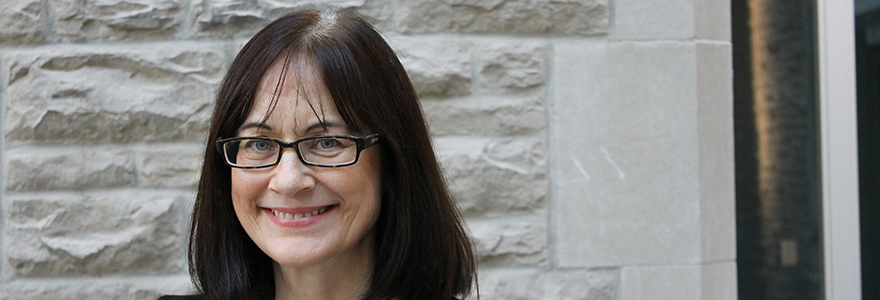News and Updates
Contact
Faculty of Social Science
Social Science Centre
Room 9438
Western University
T. 519-661-2053
F. 519-661-3868
E. social-science@uwo.ca
A little bit of Mars, here on Earth
March 06, 2018
Story by Rob Rombouts
Natalie Allen has set her sights on Mars or, at least, a suitable Earth-based stand in.
Allen, Professor in the Department of Psychology at Western, is taking part in AMADEE-18, a Mars analogue mission organized by the Austrian Space Forum, in partnership with the Oman National Steering Committee for AMADEE-18. The field simulation for the analogue was conducted in the Dhofar region of Oman.
Space agencies complete analogue missions to conduct specific scientific experiments and to assess various operational aspects of interplanetary missions, providing a chance to determine where problems may arise and helping to develop approaches or solutions, while on Earth. Analogue missions can prevent costly or life-threatening situations on real missions and provide a chance to run repeated experiments.
The AMADEE-18 consists of 18 experiments, many focused on technical aspects of a Mars mission, such as establishing horticultural projects, different methods of surface exploration and 3D printing workflow.
Working along with Dr. Melissa Battler of Western’s Centre for Planetary Science & Exploration and Mission Control Space Services, and Psychology PhD student Julia McMenamin, Allen and her Teamwork Lab are focused on the human aspect of the mission, looking at how it feels to for a group of highly-specialized people to be part of a high-stakes, high-pressure mission. As any future Mars mission will involve a long, possibly one-way, voyage, the study is looking at how conditions of confinement and isolation may affect levels of group cohesion and conflict.
The research team is interested in what the timeline of group cohesion and conflict looks like.
“We typically imagine that group cohesion starts fine but breaks down over time,” said Allen. “The participants have limited contact with others and extreme contact with each other, and they are under pressure in terms of the nature and criticality of the work to be done.”
In this study, Allen is asking participants to complete a confidential survey on perceived levels of group cohesion and conflict. The surveys are stored in the module, and will be collected and analysed after the analogue mission is complete.
In the summer of 2017, the research team conducted similar research with geology field expeditions in Mars-analogue areas of the Canadian arctic. To draw clearer conclusions, Allen and the team plan to undertake more analogue mission research of this sort with other teams in extreme environments.
“Essentially, we need to do the same study over and over again,” said Allen, “in order to build on multiple samples and account for varying situational – and people – factors.”
While the project may be focused on out-of-this-world experiences, Allen said the results could impact our understanding of everyday teams. “If we find the pattern of conflict over time mimics that in a ‘regular work group’, then we could learn something about humans generally,” said Allen. “If the patterns are different, this would be particularly useful to the world of ‘extreme teams’, and could help define the workflow of future missions.”

